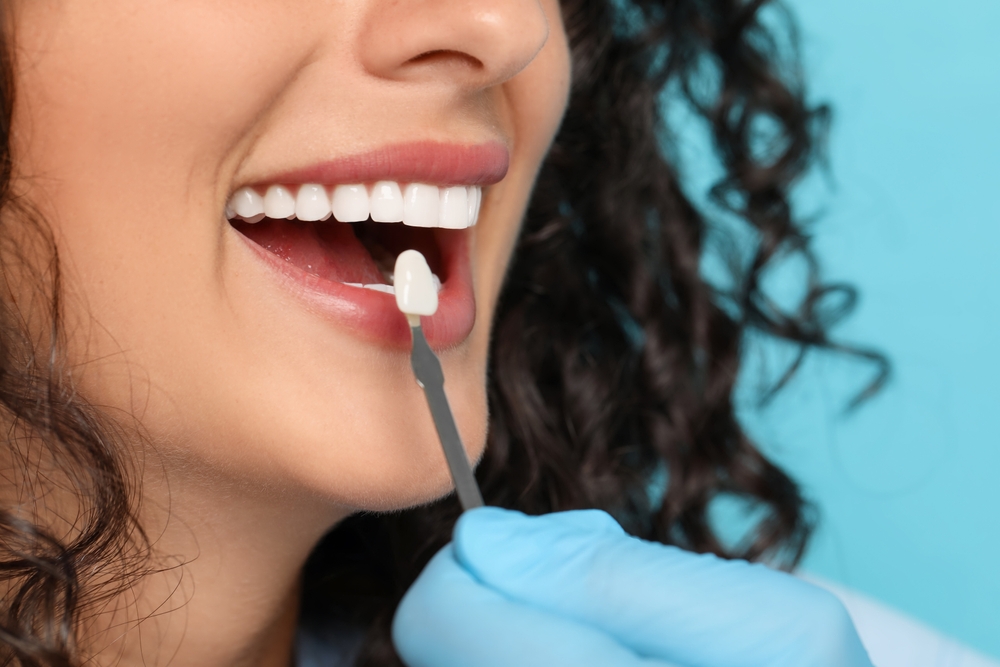Canker sores are shallow, painful ulcers that develop inside the mouth. If you’ve had them in the past, then you know how annoying they are, particularly when eating or speaking. Are you curious about what causes canker sores and how to prevent them from recurring? You’ve come to the right destination! When you see a dentist near you, he or she can determine what the culprits are and can prescribe what is optimal in prevention.
What Causes Canker Sores?
Canker sores don’t appear out of nowhere. Several factors can trigger them, and understanding these causes can help you avoid future outbreaks. During a visit to a dental office in Harrisonburg, your dentist may explain that common triggers include:
- Mild injuries to the mouth: Cheek biting, sharp bracing, or dental appliances can trigger.
- Stress and sleep loss: Emotional stress and loss of sleep are frequent precipitants.
- Nutritional deficiencies: Low iron, folate, or vitamin B12 stores raise risk.
- Hormonal shifts: Changes that take place with menstruation or puberty may be involved.
- Underlying illness: Illnesses such as gastrointestinal disease or immune system illness sometimes cause recurrent sores.
To know the reason behind canker sores is to learn how to effectively prevent them.
Can Sleep Problems and Appliances Play a Role?
You might be surprised, but mouth dryness or friction from oral devices can also irritate tissues and lead to sores. For example, people who use sleep apnea appliances in Harrisonburg sometimes experience mild irritation in the mouth if the device doesn’t fit well. Regular dental checkups ensure that these appliances are comfortable and adjusted correctly.
Do Dental Treatments Affect Canker Sores?
In some cases, there are small irritations that may be caused by a few restorations or treatments. For example, if you’ve had cosmetic dental crowns and there is an uneven bite or a rough edge, it may cause tiny sores until it is remade. Never hesitate to call your dentist when you experience persistent pain after any dental treatment.
How to Prevent Canker Sores?
While you can’t always prevent canker sores completely, these tips can help reduce their frequency and severity:
- Keep your mouth clean – Use a soft toothbrush for gentle brushing and skip strong, burning mouthwashes.
- Eat a balanced diet – Include foods rich in vitamins B12, iron, and folate.
- Stay hydrated – Dry mouth can worsen irritation.
- Avoid irritants – Limit spicy, acidic, or salty foods that can trigger sores.
- Control stress – Try calming activities like yoga or simple breathing exercises.
When Should You See a Dentist About Canker Sores?
Most canker sores heal on their own within one to two weeks. However, you should see a dentist if:
- You notice the sore isn’t healing after two weeks.
- You experience severe pain that affects eating or talking.
- There are unusually large sores or multiple ulcers at once.
- You notice signs of infection like swelling or fever.
- Sores keep coming back frequently.
Seeing a professional ensures that any underlying issue is identified early and treated effectively.
Relief for Canker Sores is Just One Step Away; Visit Now!
Canker sores can be frustrating, but the right care makes all the difference. If you’re dealing with frequent sores or need relief fast, book an appointment with Blue Stone Hills Dentistry today for expert evaluation and personalized solutions!
FAQs
1. Can you catch canker sores from someone else?
- No, canker sores don’t spread. They’re not like cold sores because they aren’t caused by a virus and can’t be passed to others.
2. How many days do canker sores stick around?
- Most heal on their own within 1–2 weeks. Severe or recurring sores may need professional care.
3. Do certain foods cause canker sores?
- Yes. Spicy, acidic, or salty foods can trigger or worsen sores for some people.
4. Can stress really cause canker sores?
- Absolutely. Stress and fatigue are among the most common triggers.
5. When should I see a dentist about canker sores?
- If they last longer than two weeks, are unusually large, or occur frequently, schedule an appointment.






